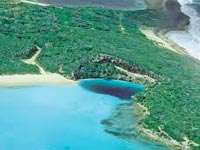Nassau, The Bahamas – The Inter-Development Bank (IDB) is working in tandem with the Ministry of the Environment, and Bahamas Electricity Corporation (BEC) to condition energy efficient behaviours and regional conservation best practices.
The Bahamas is one of the owners and governors of the IDB and in 2010 a $70 billion general capital increase was approved for the bank in order for the institution to meet the demands of its member countries.
“We at the Bank are absolutely delighted to be partnering with the Government of The Bahamas in this really important initiative.
We are committed to supporting the Government of The Bahamas and the people of The Bahamas in improving your energy security,” said Astrid Wynter, IDB representative.
“Our region is very heavily dependent on the use of fossil fuels for our primary energy needs. And so this fact alone raises the question of our energy security. As a country, in The Bahamas and as a region on the whole, we are extremely vulnerable. It also means we divert funds and pay a lot for energy, which otherwise might be used to invest in our continuing development. We are also subject to all the fluctuations as you can see right now in the price of oil.”
In 2008, the IDB researched and discovered proven methods of reducing energy consumption by 10 percent over the next decade within the Caribbean and Latin American region that would cost only $16 billion by 2018.
If the investments were not made, then it would have cost the region $53 billion to meet energy demands of the future.
“These efficiency measures will not compromise people’s comfort or economic competitiveness.
With the CFL lighting, you will be assuming the same level of usage but you will have a 70 percent reduction in consumption,” said Ms. Wynter.
“This is one piece of the package. There is another piece here, which is a panel for solar heating. It converts solar energy to heat a water tank. There are several initiatives that yield all together the greater efficiency of the use of energy.”
In December 2007, the United States Congress passed the Energy Independence and Security Act that phases out the use of incandescent bulbs in America starting with 100-watt bulbs.
It will end in 2014 with 40-watt bulbs.
Countries like Australia, New Zealand and Cuba have already banned the bulbs and The Bahamas is also preparing for them to not be around any longer.
“The increase in ordinary capital between 2012 and 2015, 25 percent of that by 2015 is to be dedicated to lending and operations in sustainable energy, climate change initiatives, and environmental sustainability. The current proportion of the bank’s portfolio dedicated to those issues is five percent. It means we are to go from five to 25 percent by 2015, and this has come based on the demand from each of the countries and the governors of the bank,” said Ms. Wynter.
By Gena Gibbs
BAHAMAS INFORMATION SERVICES



